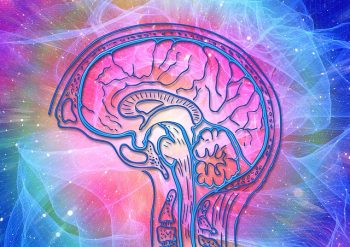Cognition/Brain/ADHD/Autism (34 hours of content)
Cognition and Brain Health Module:
Exploring Dementia, Alzheimer’s, ADHD, and Autism Spectrum Disorders
Including a Special Focus on The Ketogenic Diet and BONUS content on Traumatic Brain Injury (TBI)
All sessions are recorded for review after the fact. Individual module registrants receive recording access for 8 months from the course start. (Full course participants have 3 years to access.) All other course materials available for download to your permanent files. Credit earned after passing self-study quizzes for each unit.
What’s Covered in This Module:
- The many aspects of cognitive heath, neurobehavioral, and neurodevelopmental disorders including assessment, prevention of decline, and overall therapeutic support, specific to the areas of diet and lifestyle.
- Causes, complications, and contributing factors for cognitive decline, and more specifically for Alzheimer’s, ADHD, and autism spectrum disorders (ASD).
- Alternative therapies, as well as a special focus on the Ketogenic Diet for its support in cognitive health.
- Previously recorded BONUS content providing a comprehensive overview of TBI; nutrition considerations and intervention
Overview:
 Concerns related to cognition and brain health are ever-growing, and rightfully so. It was estimated in 2019 that 50 million people lived with dementia worldwide, with numbers expected to almost double every 20 years, to 82 million in 2030 and 152 million in 2050.
Concerns related to cognition and brain health are ever-growing, and rightfully so. It was estimated in 2019 that 50 million people lived with dementia worldwide, with numbers expected to almost double every 20 years, to 82 million in 2030 and 152 million in 2050.
The first unit of this module focuses on causes and factors of age-related cognitive decline as well as for Alzheimer’s. Nutritional factors that are associated with cognitive decline will be explored, including foods considered excitatory, advanced glycation end products (AGEs), glycemic control. The impact of oxidative stress and mitochondrial dysfunction will be examined as well.
Along with genetic predisposition, the APO E gene will be discussed with its connection to Alzheimer’s. A review of nutritional biochemistry and nutritional lab assessment will reinforce the necessity of several nutrients including B vitamins, CoQ10, lipoic acid, and more in support of cognition.
Prevention is the key to maintaining optimal cognition and brain health. This section of our module also covers nutritional and herbal interventions that support cognitive function, affecting multiple brain processes by regulating neurotransmitter pathways, synaptic transmission, membrane fluidity and signal-transduction pathways. Some of these include omega-3 fatty acids, lutein, folate, and more. Supplement examples are given.
 Autism and related spectrum disorders are a special sub-type of cognitive disorders and will be explored in a separate unit of the module. In 2020, the CDC reported that approximately 1 in 54 children in the U.S. is diagnosed with an autism spectrum disorder (ASD).
Autism and related spectrum disorders are a special sub-type of cognitive disorders and will be explored in a separate unit of the module. In 2020, the CDC reported that approximately 1 in 54 children in the U.S. is diagnosed with an autism spectrum disorder (ASD).
In this unit, we’ll examine the various subtypes under the umbrella of autism spectrum disorders (ASD) and potential, contributing factors for ASD development. The critical roles of methylation and genomics, oxidative stress, gastrointestinal function, microbiome, and the immune system in relation to ASD will be explored in depth. You will be provided comprehensive coverage of the clinician’s role in the management of ADHD/ASD disorders, including implementing specialty diets, diet dos and don’ts, interventions for difficult eating behaviors, and supplemental support options. Various adjunct therapies will also be explored.
 While the Ketogenic Diet could be a part of other modules, such as CardioMetabolic and Cancer, we include it here with a focus on its therapeutic benefits in cognitive health and seizure disorders.
While the Ketogenic Diet could be a part of other modules, such as CardioMetabolic and Cancer, we include it here with a focus on its therapeutic benefits in cognitive health and seizure disorders.
Ketogenic diets have gained in popularity in recent years. It’s imperative that clinicians know the diet ins and outs to apply in practice with maximum effectiveness and safety! This unit provides a comprehensive overview of what the ketogenic diet is, who it is best used for and who are not appropriate candidates for the diet. Also covered are the diet’s benefits, useful diagnostics, and guidelines for starting someone on a ketogenic diet responsibly.
Lastly, according to the CDC, in 2019. there were about 61,000 deaths in the US from a traumatic brain injury (TBI). Another 224,000 people were hospitalized and survived. This is a large group of potential patients that can benefit from nutritional intervention. In this unit, special BONUS content will cover a comprehensive overview of nutritional considerations for traumatic brain Injury (TBI).
At the end of this module your toolbox will be packed full of support for cognition and brain health, especially for the focuses presented. Your confidence will most certainly be boosted to work with cognitive-related health issues!
